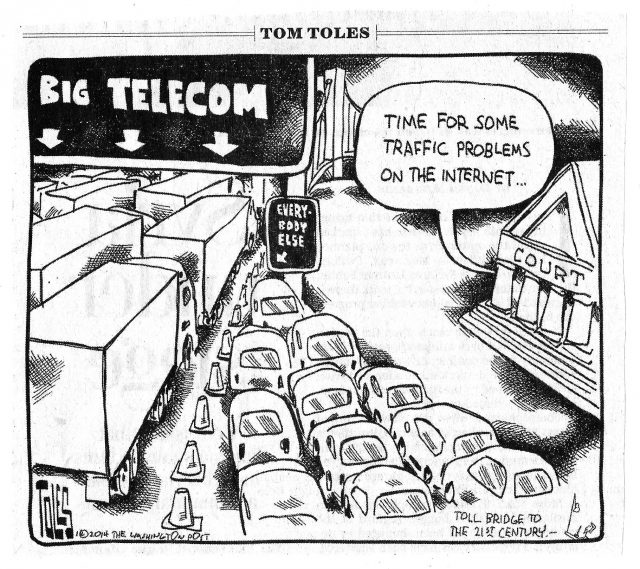FCC Considering 18-24 Month Delay of $9 Billion Rural 5G Subsidy Until Accurate Coverage Maps Appear
 The FCC is likely to delay for up to two years a massive $9 billion subsidy program that will provide 5G wireless service in rural America because the agency’s broadband coverage maps are too flawed to credibly determine where the money is needed.
The FCC is likely to delay for up to two years a massive $9 billion subsidy program that will provide 5G wireless service in rural America because the agency’s broadband coverage maps are too flawed to credibly determine where the money is needed.
The delay is just the latest in a series of speed bumps that have slowed down rural wireless service expansion, hampered mostly by service coverage maps that typically over-promise service that just doesn’t exist in many areas.
A revised subsidy program would double the funds available for rural wireless service, but delay projects at least 18-24 months, with the first awards granted sometime in late 2022.
The wireless subsidy program is designed to enhance rural wireless/mobile coverage across the United States. The FCC estimates about 83% of rural America is currently covered by 4G LTE service providing an average of 10/3 Mbps. In urban and suburban communities, 97% of areas have 4G coverage and often at faster speeds. Small, independent wireless carriers have popped up to serve rural states and regions that have been ignored by AT&T, Verizon, and T-Mobile, but coverage gaps still remain far from well-traveled interstate highways or in mountainous regions. Carriers have typically considered those areas unprofitable to serve, failing Return On Investment formulas that expect investments to pay off within a certain number of years. Wireless subsidies cover a portion of the cost to build and operate unprofitable rural cell towers, coaxing wireless companies to be more willing to expand coverage.
The ongoing problem of wireless coverage accuracy has had a direct impact on rural funding programs that have rules forbidding spending in areas that already have coverage. Wireless companies with overeager marketing departments have routinely issued coverage maps claiming solid 4G LTE coverage in areas where many claim it doesn’t exist. The conflict over accurate coverage maps became so contentious, the FCC canceled plans to spend billions on wireless subsidies in late 2019 until more accurate coverage maps could be created.
Next week the FCC plans a vote to authorize the new $9 billion subsidy program, but funds will likely be held until wireless companies can prove their coverage claims and update coverage information so the FCC can pinpoint areas that can qualify for the funds.
“This approach won’t be the fastest possible path,” FCC Chairman Ajit Pai wrote. “But it will allow us to identify with greater precision those areas of the country where support is most needed.”


 Subscribe
Subscribe
 In fact, many broadband providers elected to curtail investment even before the COVID-19 pandemic arrived. Charter, Comcast, AT&T, and Verizon have all reduced investment in residential wired broadband services, in part because of a lack of competitive marketplace. Pai, a former lawyer for Verizon, has spent the last four years making life very comfortable for the country’s largest internet service providers. He eliminated mandated competition in set-top boxes, did nothing to stop data caps, eliminated net neutrality protections, and helped enact new rules allowing mobile providers to place future cell towers and other equipment in places that have never been acceptable before.
In fact, many broadband providers elected to curtail investment even before the COVID-19 pandemic arrived. Charter, Comcast, AT&T, and Verizon have all reduced investment in residential wired broadband services, in part because of a lack of competitive marketplace. Pai, a former lawyer for Verizon, has spent the last four years making life very comfortable for the country’s largest internet service providers. He eliminated mandated competition in set-top boxes, did nothing to stop data caps, eliminated net neutrality protections, and helped enact new rules allowing mobile providers to place future cell towers and other equipment in places that have never been acceptable before. Pai’s tenure as chairman has been four years of smug arrogance and a complete disinterest in the input of consumers. Millions have told the FCC to leave net neutrality policies in place. Pai and his Republican colleagues ignored them. The Republican commissioners have delivered speeches at some of the most partisan right-wing groups imaginable, but won’t respond to ordinary Americans looking for actual evidence of competition and consumer protection. For much of this year, Pai’s two Republican colleagues have spent much of their time on Twitter pursuing their own agendas. Commissioner O’Rielly has made closing down low power community pirate radio stations his obsession. At least that is covered under the FCC’s mandate. Commissioner Carr has spent his time on Twitter complaining about people being mean to President Trump on social media, his obsession with China and freedom of speech, and his suspicions about the World Health Organization (WHO).
Pai’s tenure as chairman has been four years of smug arrogance and a complete disinterest in the input of consumers. Millions have told the FCC to leave net neutrality policies in place. Pai and his Republican colleagues ignored them. The Republican commissioners have delivered speeches at some of the most partisan right-wing groups imaginable, but won’t respond to ordinary Americans looking for actual evidence of competition and consumer protection. For much of this year, Pai’s two Republican colleagues have spent much of their time on Twitter pursuing their own agendas. Commissioner O’Rielly has made closing down low power community pirate radio stations his obsession. At least that is covered under the FCC’s mandate. Commissioner Carr has spent his time on Twitter complaining about people being mean to President Trump on social media, his obsession with China and freedom of speech, and his suspicions about the World Health Organization (WHO).
 The Federal Communications Commission has announced a new updated version of its FCC Speed Test app, helping consumers evaluate their internet connection while also sharing performance data with the Commission.
The Federal Communications Commission has announced a new updated version of its FCC Speed Test app, helping consumers evaluate their internet connection while also sharing performance data with the Commission.
